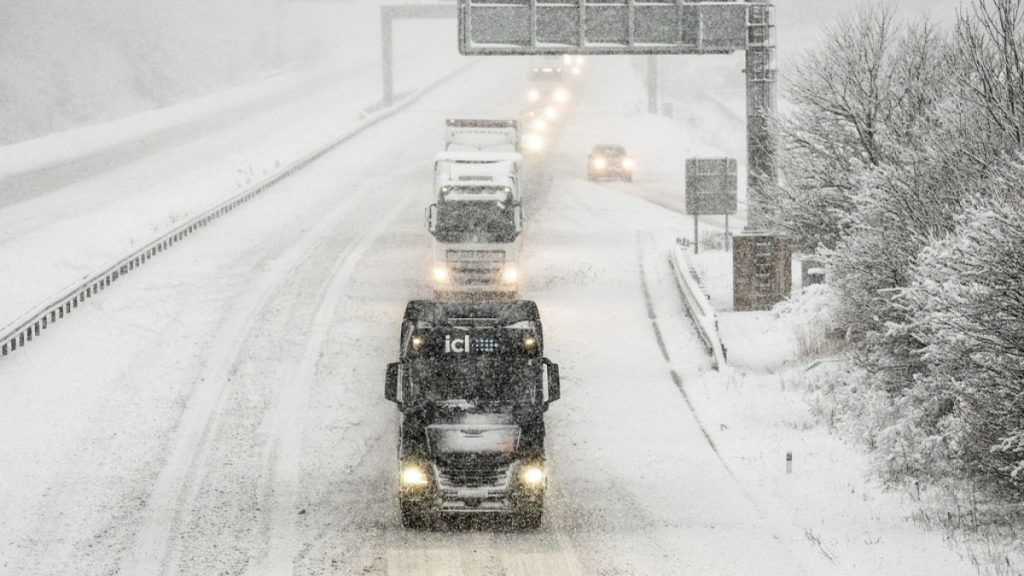The onslaught of heavy snow and freezing rain across Europe, particularly in Germany, triggered significant travel disruptions on Sunday, December 10th. Frankfurt Airport, a major European hub, bore the brunt of the storm, canceling 120 flights out of a scheduled 1,090 due to the challenging combination of reduced visibility and the necessity of runway clearance. This represents over 10% of the planned air traffic, underscoring the severity of the weather’s impact. Similarly, Munich Airport operated at a diminished capacity, relying on a single runway while crews worked diligently to clear the other from accumulating snow and ice. These cancellations rippled through travel itineraries, causing delays and inconveniences for countless passengers. The proactive measure of preemptively canceling 35 flights on Saturday at Munich Airport, while intended to mitigate Sunday’s disruptions, still resulted in the postponement of approximately 750 flights by Sunday. The ripple effect of the storm extended to other German airports, including Stuttgart, where de-icing procedures were significantly prolonged due to the persistent freezing rain. The widespread nature of the storm is further evidenced by the heavy snowfall in Cologne, where up to 10 centimeters accumulated overnight and into the early morning.
The heavy snowfall created hazardous driving conditions across affected regions, particularly in Germany. As temperatures fluctuated, the snow transformed into treacherous ice, leading to a surge in traffic accidents. A concerning number of these incidents were attributed to drivers using summer tires on snow-covered roads, highlighting the importance of appropriate winter driving preparedness. Authorities responded by issuing black ice warnings for both drivers and pedestrians, urging caution and recommending staying home whenever possible. The combination of snow, ice, and reduced visibility created a perfect storm for hazardous road conditions, underscoring the need for vigilance and appropriate safety measures.
Beyond Germany, the extreme winter weather wreaked havoc across the United Kingdom, significantly impacting travel and daily life. Numerous key roads in northern England and Wales became impassable, stranding motorists and disrupting crucial transportation routes. The severe weather conditions led to flight suspensions at several major UK airports, further compounding the travel chaos. The widespread disruption extended to the realm of sports, with several events postponed due to safety concerns and logistical challenges. The UK Met Office issued eight weather warnings, underscoring the severity and widespread nature of the storm’s impact.
Neighboring Ireland also felt the sting of the winter storm, with significant snowfall blanketing the country. Irish authorities issued two weather alerts for affected areas, reflecting the potential for disruption and danger. The storm’s impact extended beyond travel disruptions, as approximately 300,000 homes and businesses experienced power outages due to the adverse weather conditions. The loss of power further exacerbated the challenges faced by residents and businesses, highlighting the vulnerability of infrastructure to extreme weather events.
The widespread disruption caused by the winter storm serves as a stark reminder of the interconnectedness of transportation systems and the vulnerability of modern society to extreme weather events. The ripple effect of flight cancellations, road closures, and power outages highlights the importance of preparedness and resilience in the face of such challenges. The proactive measures taken by airports and authorities, such as preemptive flight cancellations and weather warnings, demonstrate the crucial role of effective communication and planning in mitigating the impact of these events.
The challenges faced by Europe during this winter storm underscore the growing need for robust infrastructure and effective emergency response systems to cope with the increasing frequency and intensity of extreme weather events. The experiences of Germany, the UK, and Ireland highlight the importance of international cooperation and information sharing in responding to such widespread disruptions. The lessons learned from this event will be crucial in informing future preparedness strategies and enhancing resilience in the face of future weather-related challenges.














